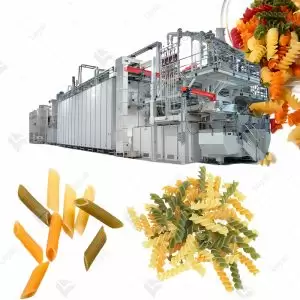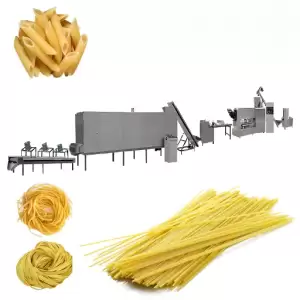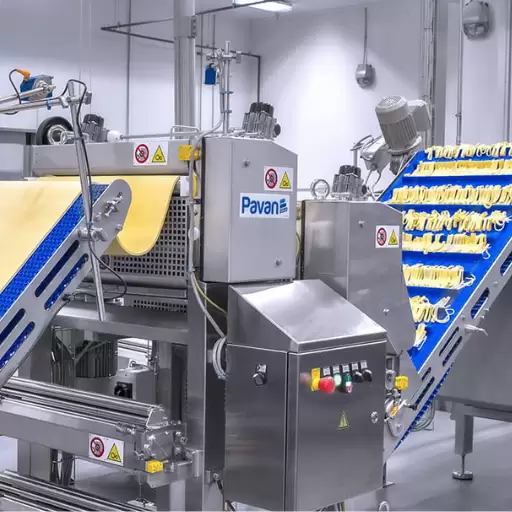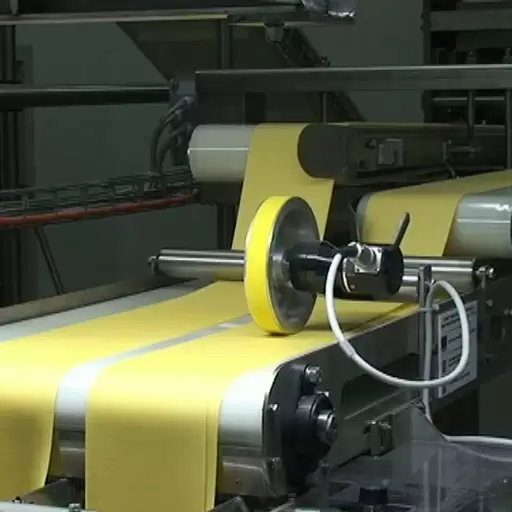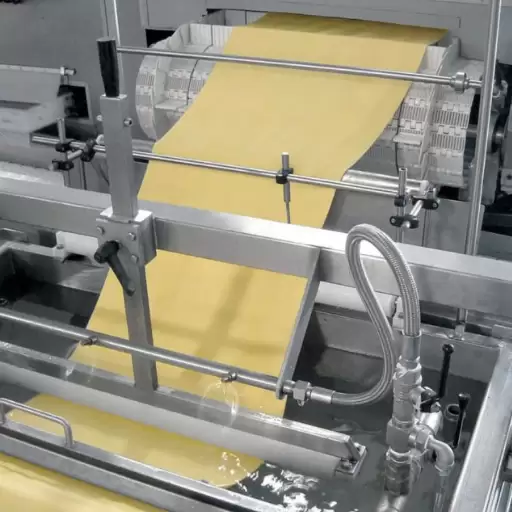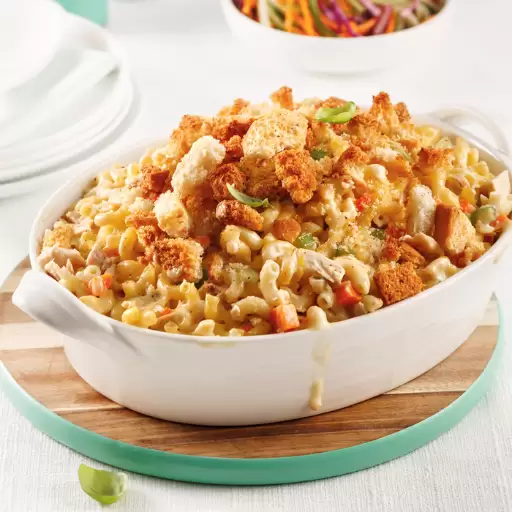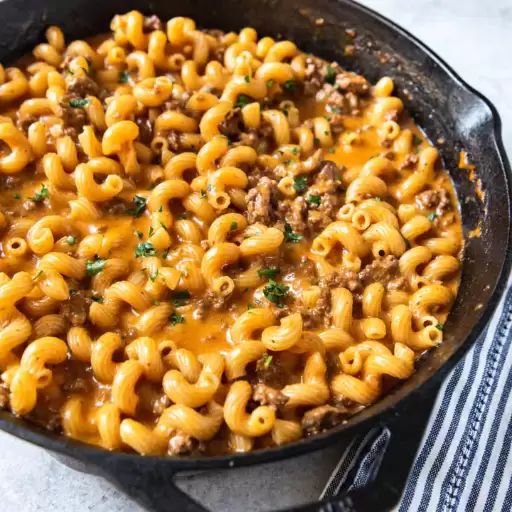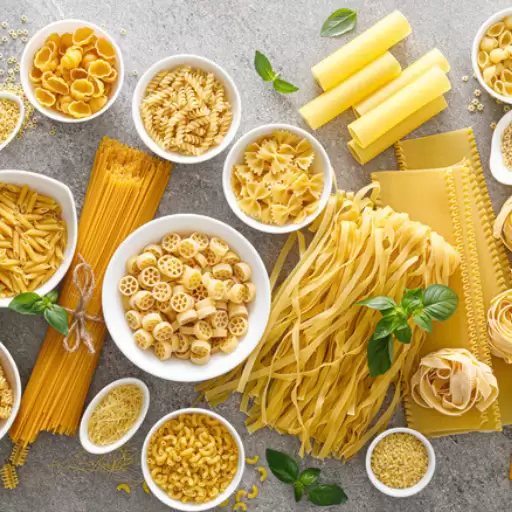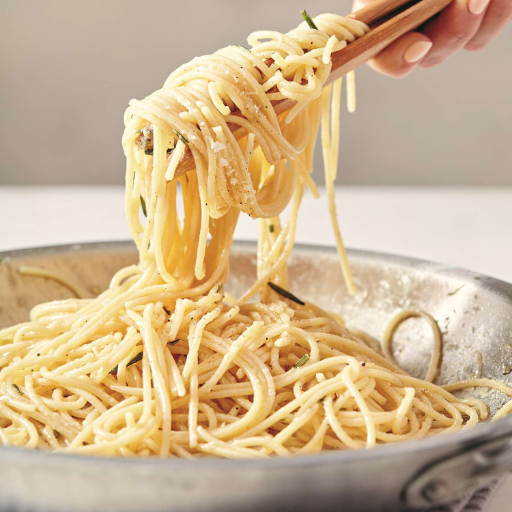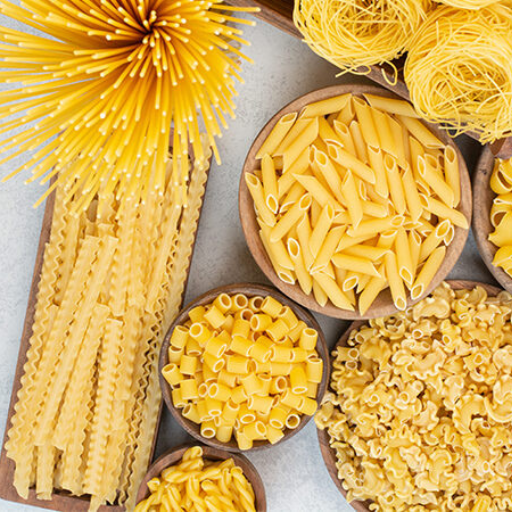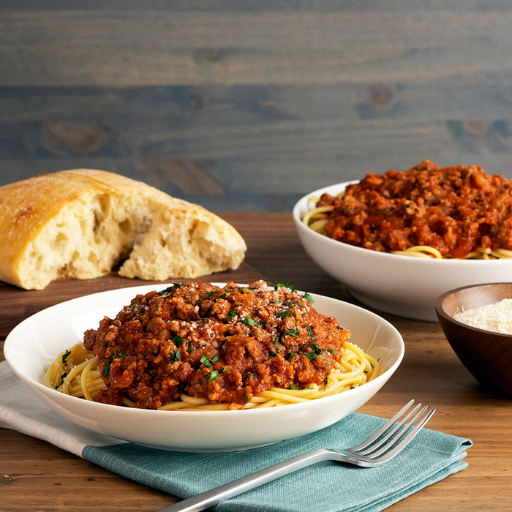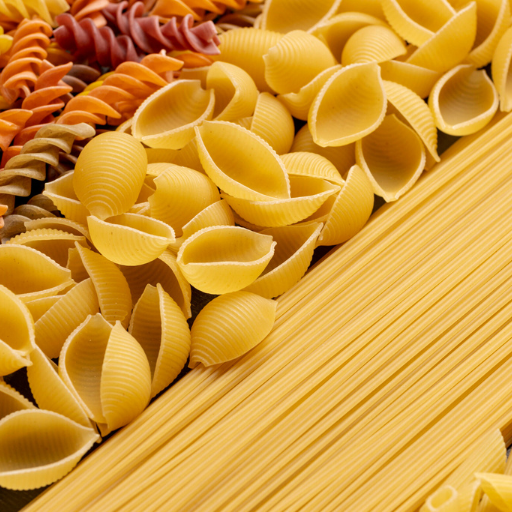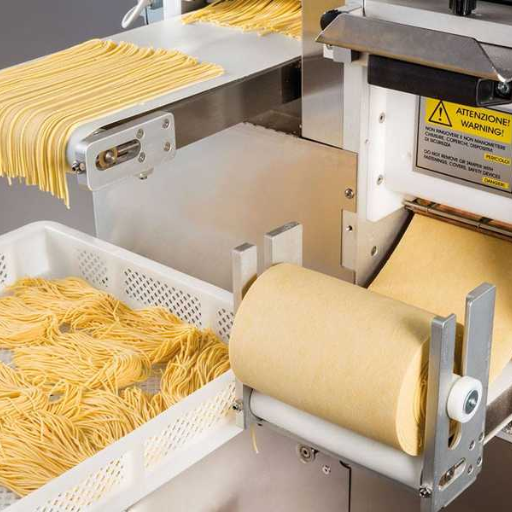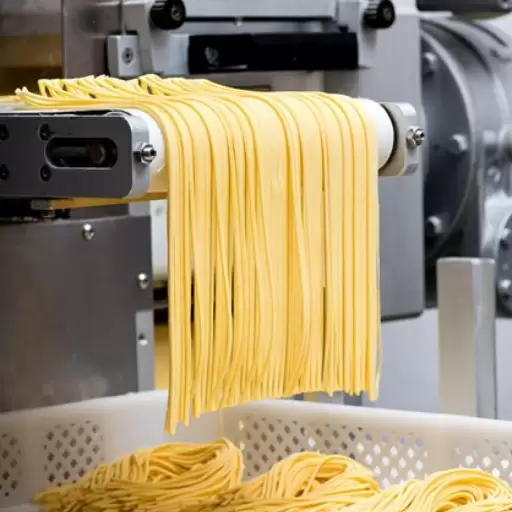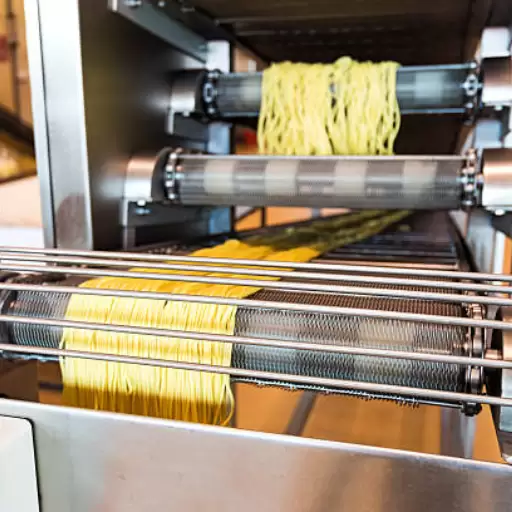Welcome to our comprehensive guide on the top spaghetti suppliers! If you are a culinary enthusiast, a restauranteur, or simply someone who appreciates high-quality pasta, this article is for you. We have scoured the globe to bring you detailed insights into the best spaghetti manufacturers who are known for their exceptional product quality, sustainable practices, and adherence to traditional pasta-making methods. Whether you’re looking to source spaghetti for your kitchen, restaurant, or retail store, our guide will help you make an informed decision by highlighting what makes these suppliers stand out in the crowded pasta market. Dive in to discover the finest producers ensuring that every dish you create has the perfect pasta as its foundation.
What Makes a Great Spaghetti Supplier?
Reliable Supplier Key Qualities
When it comes to considering the key qualities of a reliable spaghetti supplier, there are several critical factors. First and foremost, product quality is crucial: the best suppliers use high-quality durum wheat semolina and they undergo strict standards during production in order to keep up with the uniformity of texture and flavor of the pasta. Second, transparency about sourcing and production practices is important as it shows concern for ethical and sustainable ways. Thirdly, reliability in delivery schedules as well as order accuracy ensures that you always get your products on time and just the way you want them. Moreover, good customer service with prompt response to inquiries or issues indicates that a supplier is committed to customer satisfaction. Finally, certifications such as organic, non-GMO or gluten-free add more legitimacy thereby enabling brands to meet various consumer’s needs.
The Importance Of Quality Ingredients
Exceptional spaghetti rests upon its ingredients’ quality base. The most important ingredient here is high-level durum wheat semolina which boosts gluten levels (about 12-14%), gives firmness in pasta’s structure and enables it not to break into pieces after cooking further; pure filtered water should be used while mixing dough so that it doesn’t affect taste or texture.
For finest results, therefore a precise milling of durum wheat must have a consistent grind that maximizes protein content while minimizing damaged starches. This level of perfectionism plays an important role in achieving optimal water absorption during cooking resulting in al dente pasta that remains chewy when eaten.
Moreover, non-GMO and organic certifications indicate an effort towards quality and public health by reducing exposure to pesticides or genetically modified organisms where these are present; many suppliers who conform also include information about their wheat such as origin handling level so as ensure classifying transparency.
Technical parameters like protein content, ash content (below 0.9 percent), which affects color value & nutritive of pasta & Gluten Index (showing strength & elasticity of dough) serve as cardinal indicators of ingredient quality. Such parameters are a guarantee that pasta will be excellent for any cookery applications ensuring that every recipe is a success.
Certifications to look for in a Pasta Supplier
Some certifications can help you choose the right pasta supplier because they are reliable indicators of quality and compliance with high standards. Firstly, you should consider suppliers certified under ISO 22000 which ensures full food safety management. This certification indicates that the supplier follows strict safety measures in all production stages. Another important seal is BRC Global Standards for Food Safety, which provide evidence of international standard adherence and show that the supplier has done everything possible to keep its factory sanitary and free from contamination.
Another vital certification is Non-GMO Project Verified, especially important to people who care about genetically modified organisms and what they eat; such verification means that there are no genetically modified ingredients used when making this pasta. Furthermore, USDA Organic certification is an invaluable label for those who prefer organic options, indicating that the ingredients in the pasta were grown without synthetic pesticides or fertilizers.
Lastly, Kosher or Halal certifications make it possible for customers with certain dietary needs to access suitable products since religions dictate how such meals should be prepared while adhering to their dietary laws; hence these certificates reflect inclusiveness on the part of suppliers towards different cultural preferences thus being ideal choice for many consumers.
How to Choose the Best Spaghetti Manufacturer
Evaluation of Manufacturing Processes
When a spaghetti manufacturer’s manufacturing processes are evaluated, it is important to consider various technical parameters in ensuring product quality and safety. Start with the raw material selection. For instance, high grade durum wheat semolina is crucial in making premium pasta since it affects the texture and taste.
Evaluate the next thing after this which is the mixing and dough preparation stages. In order to achieve an optimal consistency of the dough, gluten content and hydration levels should be carefully monitored. Look for manufacturers who have the right mix that ensures all their products are uniform.
Another parameter to consider is extrusion process. Bronze dies produce rougher textured spaghetti which sticks well with sauce while stainless steel ones give smooth texture. One only needs to decide his or her preference from among these different characteristics when choosing a suitable producer of spaghetti.
Drying conditions must be considered as well during the manufacturing process. The slow drying at low temperature preserves nutrients and maintain structure of spaghetti to avoid it from breaking during cooking time.
Lastly, consider how they pack their product ready for sale to customers. In addition to being moisture-proof, such protective coverings can also be resealed thus making them last long on shelf while remaining fresh.
To sum up, you can make an informed choice when picking best pasta manufacturer by evaluating all above mentioned technical parameters–raw material quality, dough preparation, extrusion methods, drying conditions and packaging.
How to find High Quality Pasta
Finding high-quality pasta involves understanding what factors influence its excellence. To begin with select pasta made out of 100% durum wheat semolina because this type has got a rich firm texture as well as superior flavor. Choose the type produced using bronze dies which result into rough surface good for holding sauce. Additionally slow dried at low temperatures maintains its flavor and nutritive content hence avoiding becoming mushy when cooked finally packaged properly to protect against moisture and ensure freshness for extended periods in order to prolong lifespan. These are the things to focus on while looking for high quality pasta.
Comparison of Different Spaghetti Brands
When comparing different spaghetti brands, it is essential to evaluate them based on a set of well-defined technical parameters:
Raw Material Quality:
- Durum Wheat Semolina: 100% durum wheat semolina should be used by companies as this would give firmness and taste.
- Nutritional Content: High nutritional content indicates minimal additives and high-quality ingredients.
Dough Preparation and Extrusion Methods:
- Bronze Dies: Traditional bronze dies make surface rough thereby making sauce stick better which is good for improved dining experience.
- Consistency of Dough: Uniform texture and quality can only be attained through even and thorough mixing of dough.
Drying Conditions:
- Low Temperature, Slow Drying: Does the brand use slow drying at low temperatures to lock in flavor, preserve nutritional quality, avoid breakage and maintain texture during cooking?
Packaging:
- Protective, Food-Grade Packaging: Moisture-resistant and resealable packaging may add more life on shelf life for a longer period of time with maintaining product freshness.
By closely examining these parameters, you can make a more informed decision on which spaghetti brand best meets the criteria for quality pasta. All these factors contribute towards the final taste, texture, and overall quality of the spaghetti, making it reliable for satisfaction in culinary activities.
What are the Leading Spaghetti Suppliers?
Top-Rated Pasta Brands on the World Market
There are three pasta brands, distinguished from other global ones by their consistent quality and superior taste:
- Barilla: Barilla is a world-known brand famous for its use of only high-quality durum wheat semolina. Among its range are traditional spaghetti, whole grain spaghetti, gluten-free spaghetti and others that cater to every person’s taste without sacrificing quality.
- De Cecco: This manufacturer has been preserving Italian pasta making traditions since its establishment. It follows bronze dies for extrusion and dries it at low temperatures to keep its texture, flavor and nutritive value. De Cecco’s spaghetti is known to be able to hold sauce better than others as well as having strong authentic flavor.
- Rummo: Also originating from Italy, Rummo takes pride in being artisanal about how they produce their pasta. The brand takes pride in “Lenta Lavorazione” or slow processing that maintains firmness and quality of each strand during cooking. Many consider it one of the best-tasting pasta out there which satisfies customers and chefs consistently.
Local versus International Suppliers
When it comes to choosing between local and international suppliers for spaghetti, each option has some advantages to offer. Local choices usually include fresh products with less preservatives which correspond well with supporters of eco-friendliness as well as people who want to promote local businesses. Additionally, they have smaller carbon footprints due to reduced transportation distances; hence producing various types of unique artisanal pastas that may not be easily available elsewhere.
Contrariwise, firms like Barilla, De Cecco and Rummo have vast experience in pasta manufacturing process; this means using better ingredients backed up by appropriate time tested procedures. They normally have enough resources to make sure that their goods remain constant in terms of quality over time while at the same time being accessible across several markets globally. Finally, sustainability coaches can choose whether they would prefer locally grown products or not by considering factors such as carbon emissions and taste.
Wholesale and Retail Options
For those who are asking themselves whether to buy spaghetti in wholesale or retail, both of these cases have their own pros which would better serve different needs. Restaurants, catering companies, and large families that require bulk quantities find it particularly convenient for them to purchase in wholesale. For example, the price per unit is normally lower when bought from wholesalers for people with a higher rate of consumption. Moreover, buying in bulk saves on packaging waste thus contributing to sustainable practices.
On the other hand, retail alternatives suit individuals needing small quantities on a daily basis very well. That way there is less chance of wastage because one only buys what they want to consume. Alternatively preferentially allows consumers to sample different types and brands of pasta without having to order much.
The summarized version here implies that whole sale is suitable for large scale purposes while retailing can be more advantageous for individuals or small family uses hence allowing variety at the same time as convenience.
How to Source Pasta from Reputable Manufacturers?
Use of B2B Platforms
Using B2B platforms to source pasta from reputable manufacturers involves some key considerations. First of all, you must check the manufacturer’s credibility by going through profiles, rating and product certification. Secondly, compare different suppliers with regards to their prices, MOQs, delivery periods among others. This is generally a detailed information about every supplier that includes its production capacity and compliance with international standards as well. Finally, use the communication tools available on these platforms to initiate dialogue, request samples or simply establish whether or not your requirements can be met by the manufacturers. By ensuring that you carefully evaluate potential supplies and exploit tools offered by B2B sites effectively; you will be able to get high-quality pasta from recognized processors.
Direct vs Indirect Sourcing
Direct sourcing refers to buying pasta directly from producers. This method allows for greater control over supply chain management leading to cost savings and an opportunity for long-term partnerships with manufacturers. It also enables customization opportunities which eventually ensure constant quality.
On the other hand, indirect sourcing involves purchasing pasta through middlemen like wholesalers or distributors. This approach is often more convenient requiring less in terms of maintaining relationships and managing logistics. Also, indirect sourcing is more flexible due to presence of intermediaries wo typically work with multiple manufactures thus they don’t need large orders but manage varing demand.
The decision between direct and indirect sourcing depends upon factors such as scale of operation one has, importance of controlling supply chain and ability to maintain supplier ties among others. Direct sourcing promotes cost efficiency together with quality control in large scale operations while small businesses that value convenience above all else opt for indirect approach.
Understanding Bulk Orders and Pricing
Bulk orders usually refer to puchasing larger quantities of pasta at a lower per unit cost hence serving as a good deal for organizations having huge needs respectively because this leads them towards significant savings . There are two main advantages of bulk ordering; economies of scale whereby cost of production and distribution per unit go down as order volume increases, leading to substantial savings and more competitive pricing for your business.
Understanding bulk pricing means being aware of the different categories of prices offered by manufacturers or distributors based on order volumes. The price per unit goes down as the quantity ordered increase. Besides, you need to take into account lead times and minimum order quantities (MOQs) as specified by suppliers since this can potentially impact your inventory management and cash flow.
When doing bulk ordering it is important to indicate your long term purchasing intentions as this may result in better terms and possible discounts. In addition, some sellers may allow for a flexible payment plan when it comes to buying items in large quantities which would facilitate efficient running of cash flows.
To sum up, navigating through bulk orders and pricing efficiently requires an understanding of volume discounts, supplier terms, and effective negotiation strategies that will guarantee the best deal for your business.
What are the Certification and Compliance Standards for Pasta Manufacturing?
ISO 9001 and Other Key Certifications
ISO 9001 and other significant certifications are important safeguards of the quality and safety of pasta manufacturing processes. ISO 9001 is an internationally recognized standard that outlines the requirements for a quality management system. By following ISO 9001, I ensure that my production meets customer and regulatory requirements through consistent processes and continuous improvement. Moreover, such credentials as ISO 22000 that focuses on food safety management systems or BRC (British Retail Consortium) Global Standards can also be used to assure quality and safety of products even more. Through attainment of these certificates, I show my commitment to high-quality production standards while enhancing trust in my products by customers.
Health and Safety Standards
Nothing else supersedes the need to safeguard health and safety when it comes to pasta manufacturing process. For instance, I use Hazard Analysis and Critical Control Points (HACCP) principles which help me identify, assess, manage hazards affecting food safety. It ensures no product being contaminated hence safe for human consumption at any point this should be avoided at all cost because it may lead to contamination thereby endangering entire lives of our consumers around the world. Further still, Occupational Safety and Health Administration (OSHA) regulations guide me towards creating a safe working environment for employees; promote prevention rather than cure policy reducing accidents’ risks at work place; Finally, Good Manufacturing Practices (GMP), contain proper handling guidelines as well as equipment maintenance among others promoting further safety enhancement among my pasta products in terms of hygiene as well as other factors like cleaning aspects among others. With these health and safety standards in place, therefore, there is assurance that my manufacturing process is strong enough to support consumer’s trust.
Environmental Sustainability Practices
This includes minimizing waste generation during pasta making process source sustainably produced ingredients minimizing energy consumption within their operations or otherwise known as environmental sustainability practices which focus on waste minimization energy conservation ingredient sourcing out along with other ingredients that go into the food manufacturing process. Through this way, I have been able to reduce the amount of waste that goes to the landfills by recycling and composting. In addition, I have invested in energy-efficient machines and where possible utilize renewable sources of energy in a bid to reduce my carbon footprint. In addition, sourcing ingredients responsibly for example sustainable farming practices ensures that the supply chain is supportive of environmental health. These efforts reveal my commitment to environmental conservationism and global sustainability goals.
Reference sources
1. Italian Cooking and Living
Source: 22 Italian Pasta Brands Available in the US
Summary: This online article provides an extensive list of 22 Italian pasta brands that are available in the US. It includes well-known brands such as Barilla, De Cecco, and Garofalo among others. The article highlights the quality and unique characteristics of each brand, making it a valuable resource for anyone interested in high-quality pasta suppliers.
2. Epicurious
Source: The Best Spaghetti You Can Buy at the Store
Summary: Epicurious, a reputable food website, conducted a taste test of 15 brands of durum semolina spaghetti, including brands like De Cecco, Ronzoni, and Barilla. The article provides detailed tasting notes and rankings, making it easier for readers to select the best spaghetti based on flavor, texture, and overall quality.
3. Loyal Machine Blog
Summary: This blog post delves into the manufacturing process of spaghetti, covering aspects from kneading the dough to drying the pasta. It explains what makes certain pasta superior based on production techniques and ingredients used. The content is educational and provides a deep dive into the craftsmanship behind high-quality pasta.
Frequently Asked Questions (FAQs)
Q: What are important qualities in a good supplier of spaghetti?
A: When looking for a high-quality supplier of spaghetti pasta, consider aspects such as quality ingredients (like wheat flour), the range of pasta shapes available, qualifications (like FDA approval or being Halal-certified) and customer feedback. They should have specialty items to be used in different food services applications.
Q: Are there suppliers that offer gluten free pasta options?
A: Yes, nowadays many of the best spaghetti suppliers also offer gluten-free pasta options. These are often produced from alternative grains such as quinoa or lentils so that dietary requirements can be catered for while retaining the taste and texture.
Q: What types of certifications should a supplier have?
A reputable distributor of boom plus llc’s private labelled pastas would need certifications from bodies like fda, halal and possibly organic or non-gmo on their labels. This guarantees that only high-quality ingredients are used in making the pasta.
Q: Can I find suppliers that provide a variety of pasta shapes?
A: Of course! Leading manufacturers offer diverse shapes such as penne, fusilli, elbow macaroni and vermicelli along with traditional spaghetti. This variety serves all sorts of cooking needs and preferences.
Q: What makes Boom Plus LLC a notable distributor of private labeled pasta?
A company known for its commitment to providing premium quality dry pasta spaghetti is Boom Plus LLC; they stock an extensive array including specialized and private label brands. They make custom offerings specifically designed for various food service establishments as well as retail outlets thereby ensuring premium quality in each product.
Q: How do I ensure that the dry pasta I’m sourcing is of premium quality?
A common strategy employed by high-end dry pasta makers is identifying raw material sources such as durum wheat flour, subjecting them to rigorous inspection processes and offering detailed product information alongside certifications.

